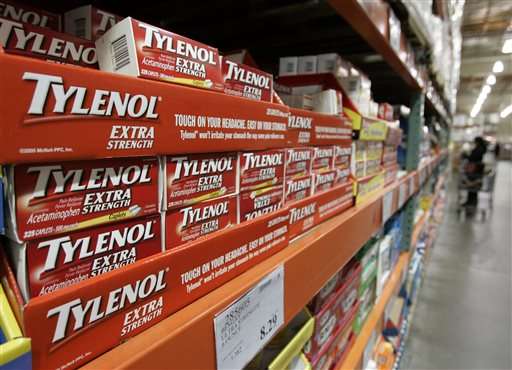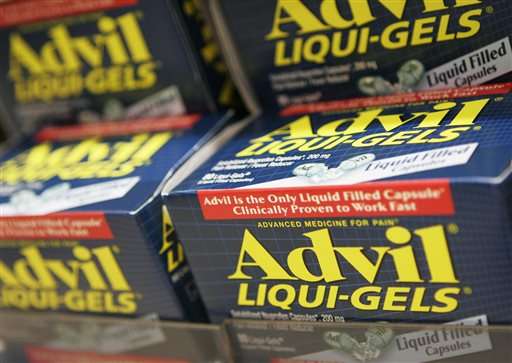Over-the-counter drug literacy a must for tweens and teens

There's so much for parents to talk about with teens heading off to college for the first time.
There's the safe-sex talk, the nutrition talk, the get-enough-sleep talk, the partying talk and the study-hard talk. In between all the talking and the packing and the planning, teaching kids how to safely self-medicate with over-the-counter preparations for colds, headaches and sore muscles might not be on the parental radar.
But it should be. And it should land there well before move-in day.
According to national surveys of parents and sixth-graders, tweens got a failing grade for knowledge about the proper use of OTC medicines. Only about half knew such medicines can be dangerous when improperly used or mixed with other drugs.
On the parent side, about the same number said they didn't believe their kids could effectively understand the drug facts on labels, let alone whether their offspring are abusing or in danger of abusing such medications recreationally.
Perhaps more surprising: The vast majority of parents said they were not sure whether OTC-related issues were taught in their children's schools.
"Based on many high school health curricula, students entering college have had very little classroom instruction regarding OTC medications," said Joy Greene, assistant dean of experiential education and a pharmacy professor at High Point University in High Point, North Carolina.
"Most of what college students know about OTC products is what they see advertised in the media and what they learn from other people," she said.

Greene and others urge parents to make sure their kids have the confidence and know the importance of consulting a pharmacist when trying to make OTC decisions they can't sort out for themselves while in the moment, standing alone or with friends in a drug store aisle staring at the crowded shelves.
Chester Goad in Crossville, Tennessee, has a 14-year-old son who plays several sports and has already started the OTC drug talk.
"We've had to have a lot of discussions regarding pain, swelling, etcetera through the years," he said. "I think parents are worried sometimes about bringing unnecessary attention to OTC medications so they avoid discussing them, or they avoid them altogether whether for philosophical or other reasons."
In Goad's case, "we have always discussed medications, why we might take a particular medication, the different types of medications, why we purchase one kind or another, because we want our son to know ingesting medications is not something to be taken lightly."
The OTC talk should also cover definitions, the importance of noting potential side effects, how to follow directions on packaging and—at Goad's house—erring on the side of a lower dose and why.
Modeling how to shop for OTC medications and how to take them when kids are younger is important. Don't wait for that busy period before a teen takes off for college.
"Advertisements seem to encourage taking an OTC for lots of conditions these days, so it's important for kids to understand every medication is serious and could potentially be harmful even if it's over the counter," said Goad, an administrator at Tennessee Technological University in Cookeville.
Internet-crazed teens may decide on Dr. Google once they've left home instead of calling a parent or seeking out real-life help from a pharmacist, doctor or nurse. Knowing credible information from the not-so-much online may be difficult, though kids as young as 11 take OTC preparations without adult supervision for minor ailments, according to the FDA.
One quick stop online is the U.S. Food and Drug Administration's Medicines in My Home program. It includes videos with easy to understand details on acetaminophen, for example, along with tips on reading drug labels.
Scholastic Inc. has partnered with the American Association of Poison Control Centers in providing free educational materials online to teachers who want to cover OTC literacy in classrooms of fifth- and sixth-graders, including role playing activities for students.
Some advocates urge parents to delve into the dangers of abuse and addiction during the OTC drug talk.
"Having suffered the loss of my two younger brothers to drugs and alcohol, I can tell you from personal experience that no drug is spared for that additional high—even over-the-counter drugs, which we as a society mistakenly believe are 'safe,'" said Jon Sundt in San Diego, California.
He founded a nonprofit organization, Natural High, aimed at inspiring young people to steer clear of OTC meds and other substances for recreational purposes, also providing materials for schools.
"Over-the-counter drugs are one of the most commonly misused drugs among Americans 14 and older," Sundt said. "Over 50 percent of teens believe that OTC drugs are much safer than illegal drugs: the same teens entering the world of adulthood and self-care as we speak."
© 2015 The Associated Press. All rights reserved.















